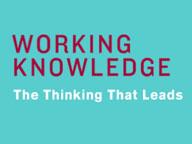Faculty News
—
"Regulating Wall Street: CHOICE Act vs. Dodd-Frank," by NYU Stern and NYU Law faculty, is spotlighted
—

Excerpt from The Economist -- "A book published in March by academics at the Stern School and NYU’s law school, 'Regulating Wall Street: CHOICE Act vs Dodd-Frank', compares the two acts, section by section. It argues that Dodd-Frank has made the American financial system safer, both since the crisis and relative to those of other large countries; but its many pages and associated rules have not got to the heart of systemic risk, and are more burdensome than necessary."
Faculty News
—

Excerpt from The Economist -- "A book published in March by academics at the Stern School and NYU’s law school, 'Regulating Wall Street: CHOICE Act vs Dodd-Frank', compares the two acts, section by section. It argues that Dodd-Frank has made the American financial system safer, both since the crisis and relative to those of other large countries; but its many pages and associated rules have not got to the heart of systemic risk, and are more burdensome than necessary."






















